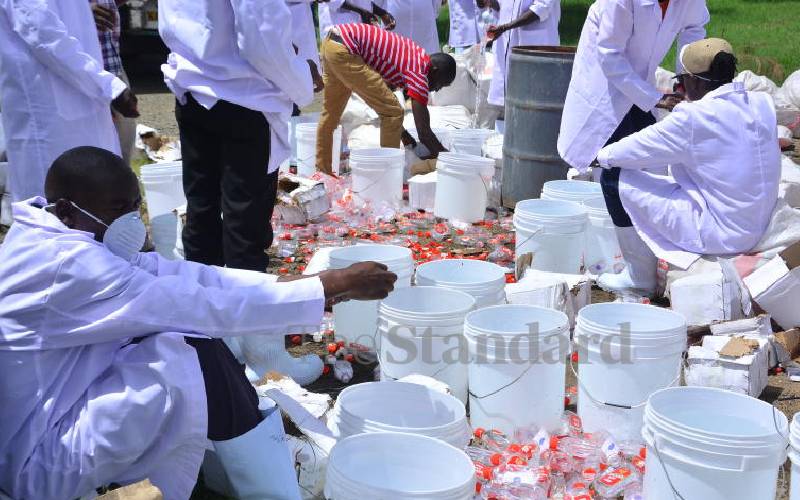×
The Standard e-Paper
Stay Informed, Even Offline

The proliferating trade in counterfeit alcohol is not only costing Kenyans their lives and livelihoods but also denying the country billions of shillings in taxes every year, a chilling intelligence report reveals.
The report, seen by The Saturday Standard, says unscrupulous manufacturers are spiking drinks with deadly industrial chemicals to make them more potent and get customers hooked. Common illicit additions include methanol, ethanol, fermented sisal juice and jet fuel.